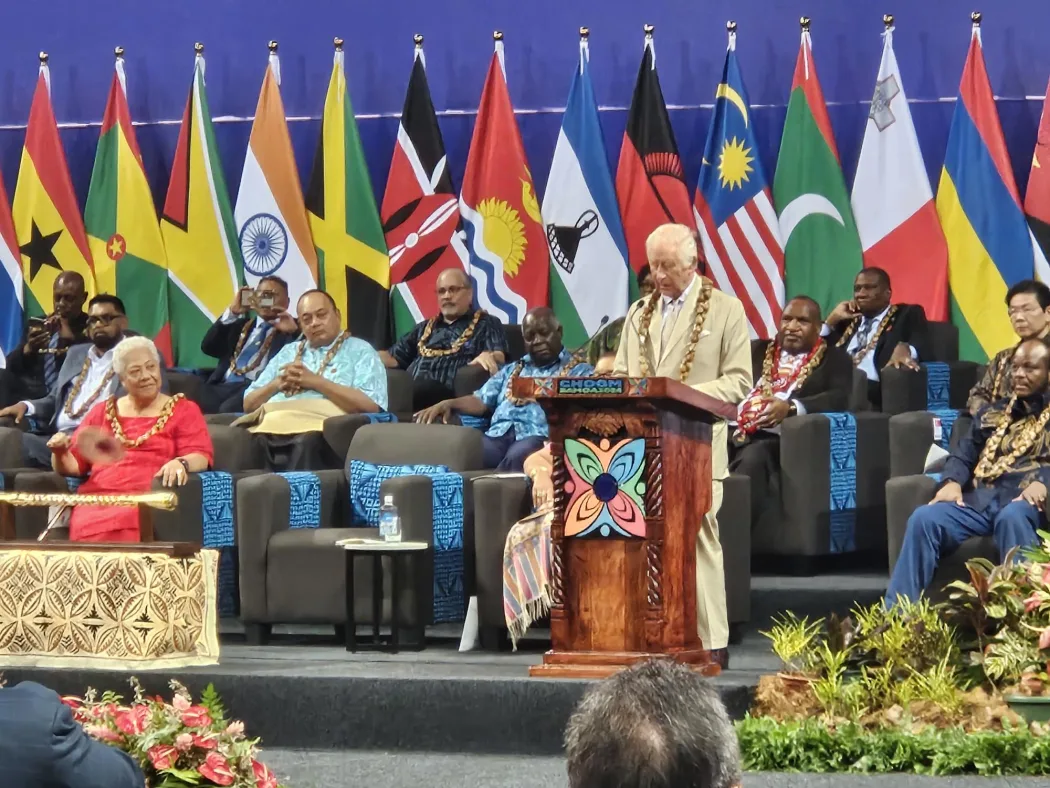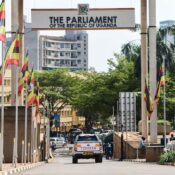
King Charles acknowledges the “painful” history of slavery as demands for reparations grow
King Charles stated on Friday that the Commonwealth should accept its “painful” past, as Caribbean and African countries demand compensation for Britain’s involvement in transatlantic slavery.
Slavery and the threat of climate change are emerging as key issues at the Commonwealth Heads of Government Meeting, which started in Samoa Monday and is being attended by representatives of 56 nations, the majority of which have roots in Britain’s empire.
Charles addressed the gathering, saying, “I have heard from people all over the Commonwealth how the most painful parts of our past still ring true.” “It is vital, therefore, that we understand our history, to guide us towards making the right choices in future.”
The need for former colonial powers like Britain to make restitution for slavery and its effects has been around for a while, but it has gained traction globally, especially within the African Union and the Caribbean Community (CARICOM).
Reparations proponents contend that huge and enduring racial disparity is a result of the history of slavery, while opponents argue that nations shouldn’t be held accountable for past wrongs.
Although he has denied calls for reparations and said he will not apologize for the nation’s historic participation, British Prime Minister Keir Starmer has stated that he is willing to speak with leaders who wish to address the issue.
According to a source from Starmer’s office, the prime minister “opened the door to non-financial reparations” such debt forgiveness and financial institution restructuring, the Guardian newspaper reported late Thursday.
A Starmer representative responded, “We don’t recognise those reports,” when questioned about non-monetary compensation.
While acknowledging that there were some calls for reparations, Starmer told Commonwealth leaders in Samoa that nations should cooperate to make sure the future is not in the “shadow of the past but is illuminated by it.”
Next year, he said, Britain would host a UK-Caribbean meeting.
Apologies and monetary compensation are just two examples of the various forms of reparations; other forms include technology transfer and educational initiatives. CARICOM has a strategy for restitution of its own.
“DESERT IN DANGER”
The draft conclusion of the summit, which is scheduled to be released on Saturday, has paragraphs that call for a reparations conversation, Bahamas Foreign Minister Frederick Mitchell told the BBC on Thursday.
“If we say we want greater equality and equity in the world, the way to do this is to examine what and how reparations might manifest, rather than to shut down the conversation,” stated Jacqueline McKenzie, a lawyer at the London firm Leigh Day, where her team is looking into the possibility of reclamation claims.
At least 12.5 million Africans were abducted and forcibly transported by primarily European ships and merchants between the 15th and 19th centuries, where they were sold into slavery. The expected number of passengers carried by Britain was 3.2 million.
Even if small island nations eventually become uninhabitable, member nations are anticipated to sign the Commonwealth Ocean Declaration during the meeting, which aims to increase funding to maintain a healthy ocean and rectify maritime boundaries.
British ambassador and lawyer Patricia Scotland, who was born in Dominica, told Reuters that the Ocean Declaration aims to “say and do that once your marine boundaries are fixed, they’re fixed in perpetuity.”
“This is incredibly important because it will give real hope to many who are frightened and are feeling no one’s watching, no one’s listening, no one’s caring – and that’s not true.”
Small countries, including numerous low-lying islands at risk from increasing sea levels brought on by climate change, make up more than half of the Commonwealth’s members.
“You come to this beautiful paradise, and then you realise that paradise is in danger,” Scotland explained.
All Categories
Recent Posts
Tags
+13162306000
zoneyetu@yahoo.com



